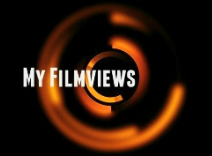
Even when wars do not leave physical scars, they still can cause mental damage. Colin Farrell is war photographer Mark Walsh, who has been doing this work for years together with his good friend David. When they are working in Kurdistan they see some horrible things. Mark als want to take pictures of the fighting they see, but David wants to return home because his wife is about to give birth. When Mark returns David still is not there.
The movie shows the effect this experience has on Mark. He doesn’t only have physical issues, but also mentally. The fact that David isn’t there is troubling for him and he does not want to talk about it with his girlfriend. She decided to call her grandfather, Joaquin Morales (a wonderful role by Christopher Lee), who she hasn’t talked to for years because she did not agree with the work he did in Spain in the war. It’s a very long and difficult process to get Mark to talk about his experience.
The images of war that are shown can be very hard to stomach. A doctor that doesn’t have the proper supplies is forced to choose who to save and who he will kill so they won’t suffer. Triage is a term that is used by doctors to decide, in a situation with many victims, in which category they belong so they can decide which ones to treat first.
All the experiences Mark had through the many years he did his job start to have a big impact on him, which you also come to understand as you watch the movie and he starts talking about them.
Triage shows the effect a war can have on a person once they leave the place. It’s like the saying that you can take someone out of a war, but you can’t take the war out of someone.
It’s another part of showing the effect war has on people (after the Messenger showed the effect on those left behind when a soldier gets killed), and is almost as interesting.
Score: 7

Pingback: Grace is Gone (2007) « Film views